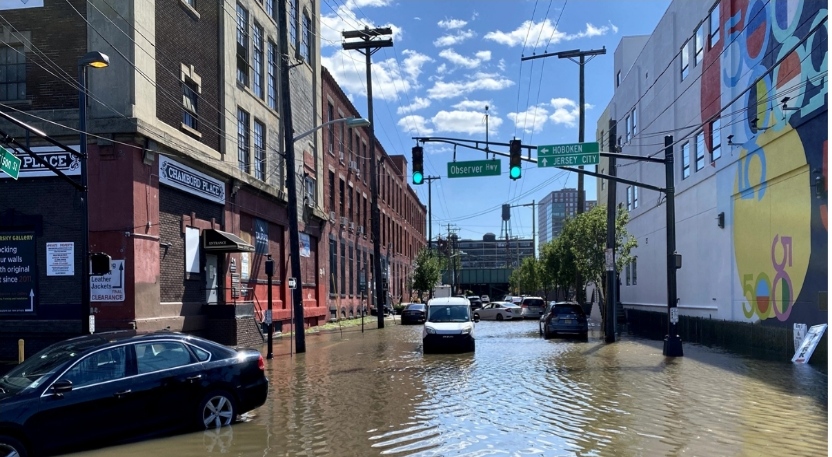Frequency of tropical storms on the rise
Extreme rainfall increased by 10% in N.Atlantic hurricane season

The picture shows a flooded area of Southwest Hoboken, New Jersey, the US after a night of high winds and rain from the remnants of Hurricane Ida
Climate change supercharged storms during the unprecedented North Atlantic hurricane season in 2020 by increasing the amount of extreme rainfall by up to 10 percent, according to new research published Tuesday.
At least 400 people were killed in the series of violent storms two years ago in Central America, the US and the Caribbean, with torrential rain, ferocious winds and flooding causing tens of billions of dollars in damages.
The record 30 named Atlantic storms in the 2020 season were so numerous that authorities ran out of their standard names and had to resort to a backup list for only the second time. Scientists estimate that global warming is increasing the intensity and frequency of massive tropical storms.
Researchers looking at the 2020 hurricane season compared the precipitation generated by these storms to models estimating those that would have fallen without climate change, so with similar temperatures to the pre-industrial era.
“The main finding of our study is that human-induced climate change increased the extreme rainfall associated with the 2020 hurricane season by 5-10 percent,” said lead author Kevin Reed, of the School of Marine and Atmospheric Sciences at Stony Brook University.
Researchers looked at two phenomena responsible for flooding: intense rain over a short period and continuous rain over a longer period.
Overall in 2020, researchers found climate change increased the volume of rain falling on the three worst days by 5 percent, and by 10 percent during the three most intense hours.
But for storms that ramp up into powerful hurricanes, the study found that the climate change effect is magnified, with an increase of 8 percent for the three worst days and 11 for the three most intense hours.
“This increase in the anthropogenic signal in rainfall from hurricanes compared to rainfall from all tropical storm strength storms is an important finding with direct consequences for coastal communities,” the study said.
Due to greenhouse gas emissions generated by human activities, the planet as a whole has warmed around 1.1 C since pre-industrial times.
Previous studies have shown that this warming has increased hurricane-related rainfall during other years, including Irma in 2017, Harvey in 2017.




